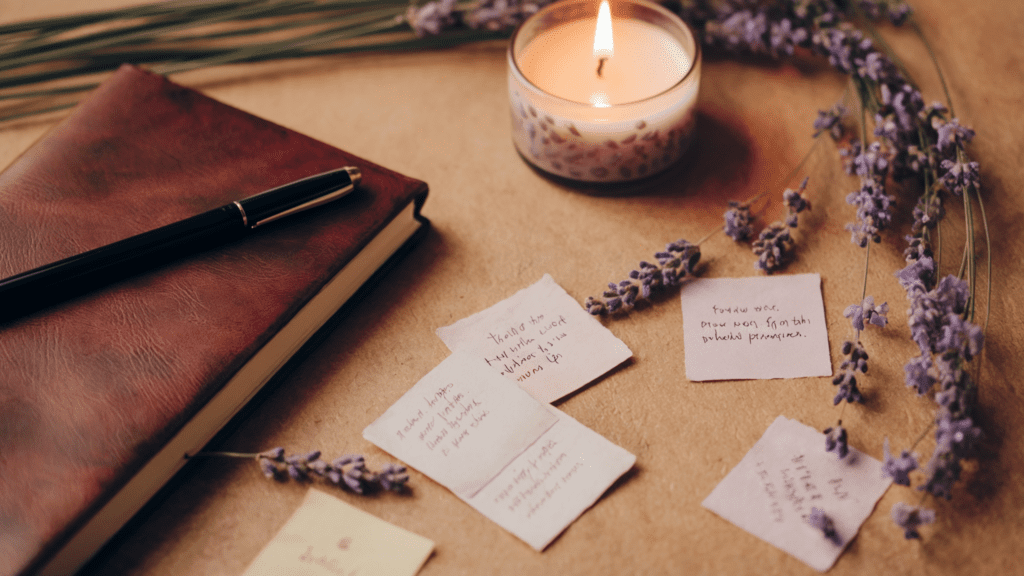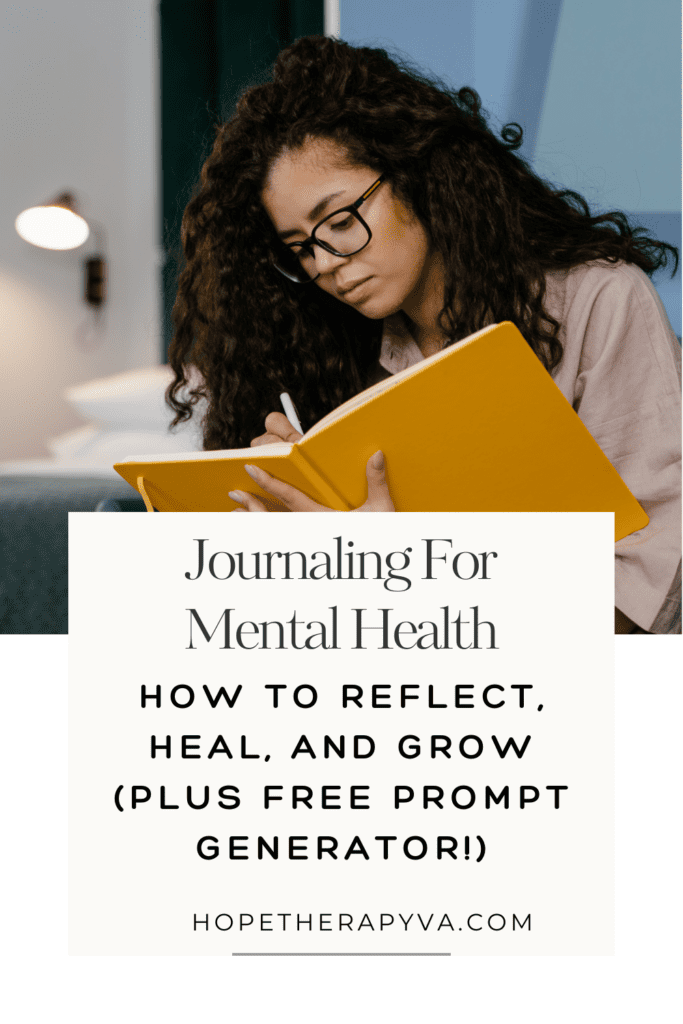Whether you’re navigating anxiety, healing from the past, or simply craving a moment of stillness in a chaotic world, journaling can be one of the most powerful mental health tools available. Journaling for mental health is more than just writing—it’s a gentle yet powerful way to process emotions, reduce anxiety, and reconnect with yourself. It’s a practice of reflection, release, and restoration.
In this post, we’ll explore the benefits of journaling for your mental well-being, how to make it a sustainable habit, and how you can get personalized prompts instantly with our free Journaling Prompt Generator.

The Mental Health Benefits of Journaling
Journaling isn’t just a feel-good activity; it’s backed by science. Research shows that regular journaling can:
-
- Lower stress and reduce anxiety
-
- Improve emotional regulation
-
- Boost self-awareness and insight
-
- Help process trauma and triggers
-
- Support behavioral change and goal tracking
When you write about your experiences, you’re not just venting—you’re making sense of things. You’re moving thoughts out of your head and onto paper where they feel less overwhelming. Journaling allows your thoughts to slow down. It creates a safe space to process emotions, notice patterns, and become more in tune with yourself. Over time, it can help you better understand your own needs, set boundaries, and recognize emotional triggers.
Research indicates that expressive writing can lead to significant improvements in both physical and psychological health.
→ Read more about the emotional and physical health benefits of expressive writing.

What Makes a Journaling Practice Truly Healing?
There is no “perfect” way to journal, but here are a few things that can help it stick:
-
- Honesty over perfection: Let your journal be messy, emotional, and real. You don’t need to write something profound—you just need to be honest. Give yourself permission to be imperfect.
-
- Consistency over intensity: Five minutes a few times a week is more sustainable than an hour once a month. Like any habit, journaling grows stronger with regular practice.
-
- Prompts over pressure: If you’re stuck on what to write, prompts can gently guide your thoughts. They remove the pressure of a blank page and invite curiosity.
-
- Ritual over routine: Light a candle, put on soft music, or cozy up with tea—make journaling feel like self-care, not a chore. Creating a peaceful ritual around it can make it something you look forward to.
Healing comes from showing up for yourself over and over again, not from getting it “right.”
Exploring various journaling techniques, such as gratitude journaling or expressive writing, can enhance mental well-being and reduce anxiety.
→ Discover different types of journaling for anxiety and mental well-being.

How to Start (Even If You’ve Tried Before and Stopped)
First, give yourself permission to start again. Journaling is forgiving.
-
- Choose a time of day when you tend to feel reflective. Morning and bedtime are both popular, but pick what feels right for you.
- Start small. Set a timer for 5-10 minutes and let whatever needs to come out flow freely.
- Pick a topic that resonates with you in the moment—something you’re currently navigating or curious about (like self-love, inner child healing, anxiety, or gratitude).
- Release the pressure. Your journal isn’t being graded. You don’t have to use complete sentences or follow a format. Let it be what it needs to be.
If you’ve started and stopped before, you’re not alone. The key is to return to journaling with compassion. Each new entry is a fresh start.
Try the Free Journaling Prompt Generator
Sometimes the hardest part is knowing where to begin. That’s why I created this free AI-powered Journaling Prompt Generator.
Just enter a topic (like anxiety, boundaries, grief, or growth), and it will instantly create 10 personalized prompts to help you explore your emotions and inner world. These prompts are designed to meet you where you are—offering clarity when you’re overwhelmed and insight when you’re seeking direction.
Give it a try below and let your next journal entry find you.
Whether you’re brand new to journaling or returning after a break, remember: your journal doesn’t need to be perfect, profound, or pretty. It just needs to be honest.
Journaling for mental health is about building a relationship with yourself, one word at a time.
And that’s where healing begins.
Stay gentle with yourself.



